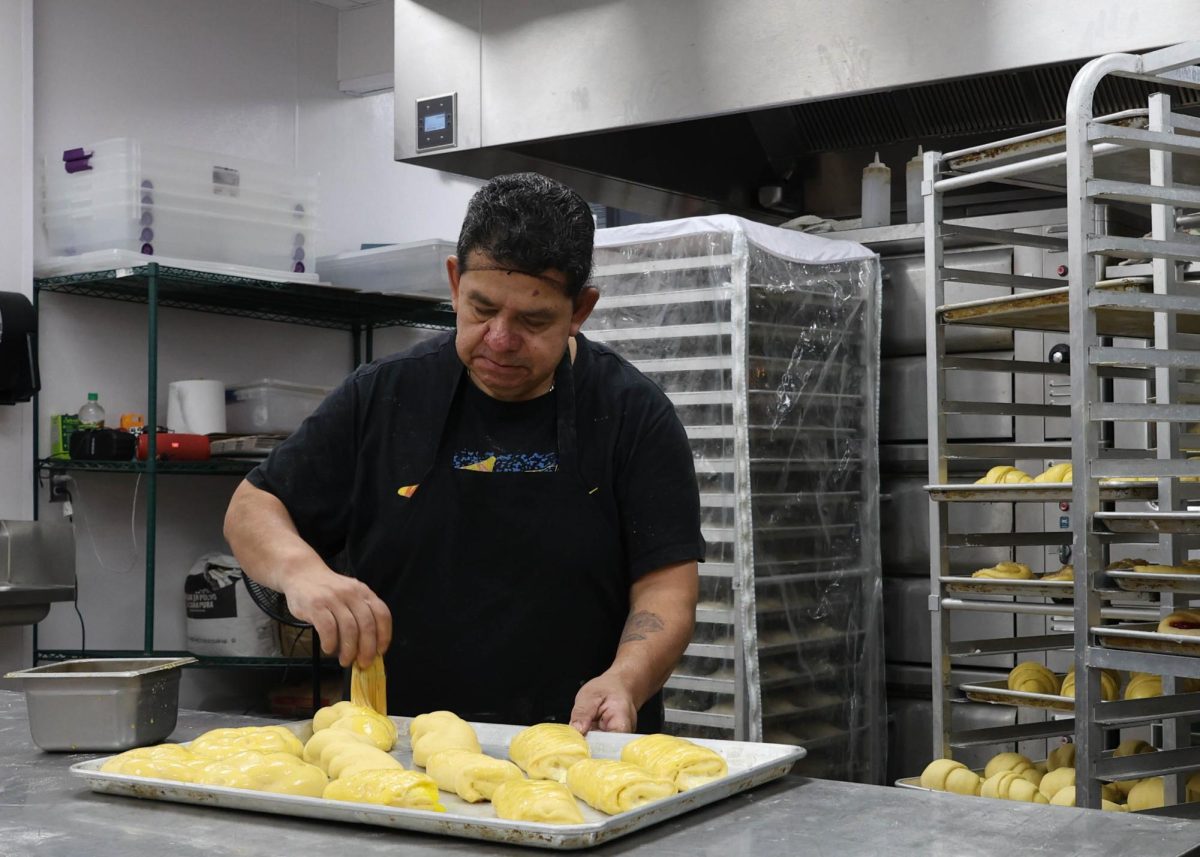Many college students far from home search for ways to reconnect with their cultural roots. One way is food, whether it be cooking it themselves or buying it from a local store.
In Asheville, that connection may lead students with Hispanic backgrounds to Don Pastel’s Bakery and Mexican Store. For over 20 years, owner Leon Perez has run the shop, selling an array of Hispanic foods.
“My most popular item is pan dulce; conchas, cuernitos, croissants,” Perez said. “There’s about 30 different types of pan dulce at minimum.”
Pan dulce is a Mexican pastry usually eaten during breakfast with coffee. It is a staple of Mexican food, with it being a social food that can be shared with family and friends. For Perez, food is more than just eating, but also having a piece of his culture with him, even when he is far from his native Mexico.
“It’s a tradition that one carries, that Hispanic families like,” Perez said. “They’re tastes that one brings from home or the country one comes from.”
Perez said the store has a lot of meaning to him and the ever-growing Hispanic community in Asheville, as there is a lot of demand for the items he sells in his store. Aside from selling pan dulce, Don Pastel’s also sells Central and South American foods such as canned goods and cooking ingredients.
“When people don’t know your products, they come and buy things, then return later to buy more things,” Perez said. “They come back satisfied because it was good, that makes my day.”
For Bryan Garcia, a 20-year-old Mexican American, pan dulce is a food that has a lot to do with sharing and connecting with his family and his culture, he says.
“It means all the same to all generations; a meal you can share,” Garcia said. “You’ll be sharing it with your family, your grandma or grandpa.”
Garcia said he recalls being a child going to the bakery with his mom picking out different types of pan dulce to take home. Garcia has traveled to his parents’ hometown in Mexico, where he said he was able to draw comparisons between food culture in Mexico and the United States and also connect with the experiences his parents had going to the bakeries in their childhoods.
“The food carries a piece of home,” Garcia said. “It means something to the people outside of their hometown, to Mexican people.”
To Elena Adell, an associate professor at UNC Asheville, food can also be a topic that brings people together in the classroom. She credits her colleague, fellow UNC Asheville professor Erica Abrams, with helping her implement food into her humanities courses.
“My experience is that when I’ve done that, students love to talk about all those things,” Adell said. “Family traditions, anecdotes, things that they remember.”
As a native of Spain, Adell said she’s had her own experiences with connecting with her Hispanic roots while living in the United States. She says that finding food from Spain in the United States gives her an opportunity to teach her friends about her culture, more or less where it’s from and its meaning.
“It’s the perfect excuse when you’re missing your other family in your country to talk and to share, to share memories as well,” Adell said.
For many in Asheville’s Hispanic community, pan dulce is more than just a piece of bread. It’s a bridge between generations, countries and experiences. From the ovens of a bakery to the tables of college students, these pastries carry memories, traditions, and a piece of home. In classrooms, kitchens, and family gatherings, food sparks conversation, connection, and cultural pride proving that the simplest of meals have a deeper meaning.




















